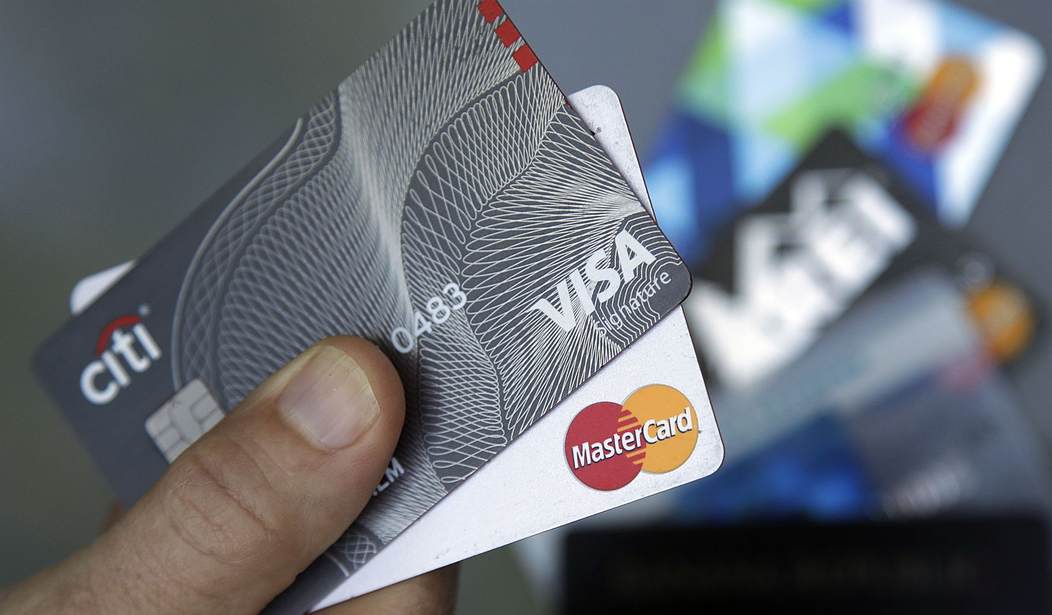Last week, at a Bloomberg tech forum, Sen. J.D. Vance (R-Ohio) rocked the political world when he said, “I look at [FTC Chair] Lina Khan as one of the few people in the Biden administration that I think is doing a pretty good job.” This comes as a rather stunning admission, as Federal Trade Commission (FTC) Chair Lina Khan has embodied the Biden administration’s antitrust approach, with routine assaults on American companies and free market economic principles.
Vance’s comments reveal the economic policy battle playing out in the halls of the federal government. It is not – as some might contend – a battle between left and right. Rather, it is between the economic populists – represented by the likes of Khan and Vance – and supporters of traditional laissez-faire, free market economics. The two diametrically opposed visions for the future of the American economy can be seen playing out right now in the financial services sector.
Last month, Capital One announced its intention to purchase the credit card company Discover for roughly $35 billion. Almost instantly, a group of 13 lawmakers called on the Biden administration to stop the merger. Given that the antitrust philosophy represented by Khan – whose FTC set a record in 2022 for most merger challenges in a calendar year and then broke their own record again in 2023 – permeates the administration, it seems only a matter of time before the Office of the Comptroller of the Currency (OCC) or the Federal Reserve follow suit and attempt to block this merger.
Sen. Vance introduced legislation – alongside Sens. Dick Durbin (D-Ill.) and Roger Marshall (R-Kansas) – dubiously titled “The Credit Card Competition Act.” The legislation would eliminate consumer choice when it comes to which payment processor will process their financial transactions. In a release, the bill sponsors claimed their legislation would break “the Visa-Mastercard duopoly.”
Recommended
Consumers choose credit cards from companies like Visa, Mastercard, American Express, or the aforementioned Discover. Those companies not only provide the physical card and partnerships with other financial institutions to make banking easier, but they also process the payments. Through the small fees they charge for their services to vendors, they are also able to sponsor immensely popular credit card protections and rewards programs. Consumers naturally flock to the company that provides the best value for their needs and can be trusted to safeguard their sensitive financial information during processing.
The Credit Card Competition Act would shift that choice from consumers to vendors. Currently, if a customer swipes their Visa card provided by their Chase bank, they trust Visa will process that transaction and the interchange fees charged by Visa will help fund whatever benefits accompanies that credit card. Under the Durbin-Marshall-Vance bill, banks would be forced to let the stores decide which processor to use, leaving consumers vulnerable and their rewards program potentially unfunded.
While the Khan-Vance coalition looks to solve problems with the force of government – using antitrust lawsuits and mandates – proponents of the free market are already seeing solutions emerge naturally. The Capital One/Discover merger is an excellent example of the market at work.
Discover is the third-largest credit card brand in the U.S., with 60.6 million cards in circulation. This makes up about eight percent of the market. This puts them well behind dominant players like Visa and Mastercard, which account for 48 percent and 36 percent of the market respectively. They are just slightly ahead of the only other major player in the space, American express, which boasts roughly 7.5 percent market share.
Capital One is the fourth-largest issuer of credit cards in the U.S. The partnership between a large issuer of credit cards and an up-and-coming credit card network like Discover could create an entity that is able to compete more effectively with Mastercard and Visa. This might also give the combined entity more resources to provide even better rewards programs and protections for consumers. It will also likely spark other entities looking to compete to up their game and get innovative themselves.
Command-and-control populists like FTC Chair Khan and Sen. Vance want to solve market problems with government mandates. They seek to punish large American companies not for causing any discernible consumer harm, but merely for the fact that they are large.
Instead of using the heavy hand of government to enforce mandates and tear down American companies, proponents of the free market seek to empower companies to innovate, leaving them free of arduous red tape. They would solve a perceived lack of competition by allowing other market players to do what they need to do to enter the competition. That competition almost invariably results in companies falling over themselves to provide the best service for the American people.
The preferable path of free market versus government command and control should be clear to anyone without a political agenda.
Dan Savickas is director of policy for the Taxpayers Protection Alliance.

























Join the conversation as a VIP Member